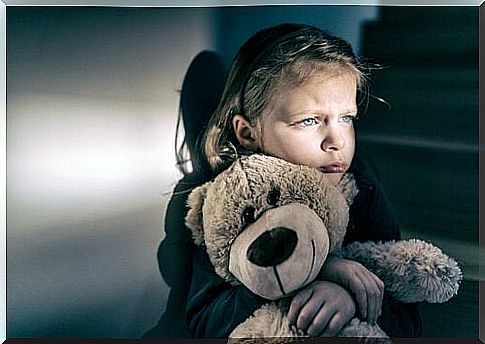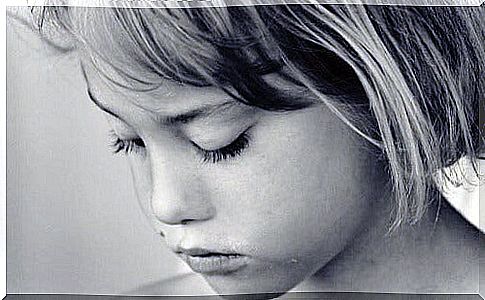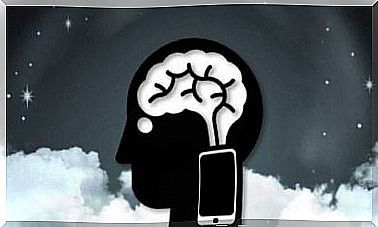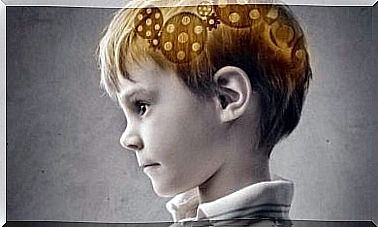Children’s Mental Health And Parental Influence

In some cases, the family can represent a toxic environment, which generates only suffering. Often these parents negatively affect the mental health of their children; there are dynamics whereby children are exposed from an early age to situations of stress, anguish, humiliation or vulnerability. These are difficult situations, the weight of which can be felt even in adulthood.
Oscar Wilde, in one of his most famous works, said that almost no one is really aware of what can happen at home. Too often a house, with its closed doors and barred windows, can become the perfect setting for a terrible situation. One of those in which mothers, fathers or other family members give life to silent tragedies that go unnoticed by the rest of society. In these cases, the influence of parents on the mental health of their children is far from positive.
According to a study by Dr Anne Marie Conn of the University of Rochester Department of Medicine, the strong impact of an unhappy childhood, and the resulting psychological damage, can last over time.
That is to say, the consequences of traumas generated by lack of affection, abuse, physical or psychological violence or any other factor that could harm the psycho-emotional development of the child are not limited to childhood. They go further, affect his mental health even going so far as to alter his brain development. In some cases such trauma can also lead to the development of psychological disorders which in turn will affect education.

When parents harm their children’s mental health
Parents affect the mental health of their children, we don’t have to worry about that. Growing up in an emotionally rich, stable family environment that fosters confidence and self-esteem allows you to become adults with excellent psychological skills. Conversely, a deficient educational style can result in a seriously compromised “psychological fabric”.
Today we know that the main cause of the psychological and behavioral problems of children lies in the family environment and in the dynamics that occur within it. A study conducted by the University of Texas was recently published in the Journal of Family Psychology according to which even a simple spanking could have serious consequences.
Any gesture, word or behavior implicitly or clearly violent leaves its mark, alters the child’s behavior, but above all, what is much more serious, remains forever imprinted in his mind. Children raised in environments where harmful educational strategies are used, but considered valid by their parents (spanking, aggressive scolding, too strict upbringing, etc.) have common traits:
- Low self-esteem
- Belief that one’s needs are not important
- They consider it wrong to express their emotions.
- They consider the aforementioned dynamics to be normal and admissible (violence, aggression, mistreatment, disrespect).

However, these dynamics have a different impact depending on the individual. Some people who can handle the weight of this dark chapter of their life. Others are more vulnerable, so their mental health suffers greatly. Let’s see how.
The ways in which parents can affect the mental health of their children
One of the main manifestations of a traumatic childhood is certainly chronic stress.
Permanent stressful situations
When the child lives in an unstable context, without the affection of a reference figure, he feels insecure, but above all he does not feel loved, therefore he experiences a feeling of stress. Initially it is an acute stress disorder, but over time it transforms into a latent, more incisive and lasting state of stress.
Chronic stress can even alter brain function and have a negative impact on attention and memory and can even lead to a state of hyperactivity or cause various difficulties in managing emotions.
Codependent relationships
Experiencing an emotional shortage from an early age leads to looking for strong relationships, which make you feel safe and gratified. However, the constant fear of losing these bonds leads the person to develop a real obsession and to “launch” into relationships based on codependency.
Constant anguish and helplessness
Growing up without the security of a loving family, a stimulating environment in which to define a strong identity, favors the development of psychological disorders during growth. Self-esteem is lacking, but above all hope. In such situations it is quite common to experience a state of chronic pessimism and anguish, typical of those with an emotional deficiency.
Likewise, it is not uncommon for children raised in a negative environment to exhibit a kind of “learned helplessness”. They are convinced that there is nothing they can do to change what is not to their liking. These people therefore feel that they have no power over their life.
Psychological mechanisms to “hide” a traumatic past
The human mind is fascinating. Often our brain is unable to bear the weight of trauma and uses some psychological mechanisms that allow it to move forward and face everyday life without the shadows of the past being able to obscure the present. In doing so, however, it favors the development of psychological disorders.
Among the most common we find dissociative disorders, a sort of altered perception of one’s identity, memory and the surrounding environment. It is a rather common effect of post-traumatic stress which, as already mentioned, is triggered by a traumatic event.

Parents have the power to affect their children’s mental health in many ways. To get out of this vicious circle, time is not enough. We must have courage, find the strength to turn to a specialized professional figure who can support us so as to regain possession of our lives and create a more livable, dignified and satisfying reality.









